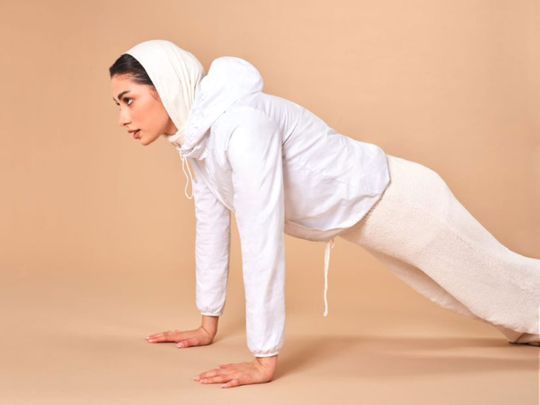
Abu Dhabi: With adjustments, it’s possible to set fitness goals during Ramadan, the Muslim month of fasting.
Helena Hijazi, who is the founder of FitnGlam, a women’s fitness club, told Gulf News: “We have one month in the entire year to devote to strengthen our spirituality. This doesn’t mean we have to jeopardise our health and fitness goals by overindulging in food and skipping workouts. But instead, we can utilise this month to increase our spiritual connection with Allah, while also improving our health and fitness.”

Planning is paramount
She said the entire Ramadan fitness regime begins and ends with planning - when to prepare meals, schedule workouts, etc. Helena stressed that there is no universal fitness programme to follow during Ramadan, rather each person must understand their own capabilities and preferences and design their workouts, diet and rest schedules accordingly.
Being honest with oneself is vital.
“Because only you know what you can commit to, therefore the goal is to pick a time where you feel your best and can put 100 per cent into your workout. In addition, by prepping your meals ahead of time, you will not have to waste time cooking and cleaning before or after iftar [sunset meal], which will allow you to squeeze a workout in,” Helena said.
‘Iftar Binging Syndrome’
Timing is key as there is a particular window of time (sunset to dawn) during Ramadan when meals can be taken.
Her advice is to incorporate small, nutritious meals through ther eating window and avoid heavy, fried and processed foods.
“Avoid IBS [Iftar Binging Syndrome]. The main reason most people gain excess fat or lack energy to train during Ramadan is due to overconsumption of calories - not from fasting itself. Large-portion meals cause weight gain and lethargy which is what often leads a person to skip their workout entirely,” Helena said.
Preserving muscle
Helena also explained the significance of resistance training during Ramadan.
“Your body uses stored carbs [carbohydrates] for energy when you fast. Your body may also turn to protein stores which can lead to loss of muscle mass. Adding resistance training to your day can help preserve muscle mass. Try bodyweight exercises such as squats, lunges, and push-ups, or add in weights for deadlifts, shoulder press, chest press, and rows.”
However, during the holy month, some adjustments to resistance training may be beneficial, Helena said.
• Decrease intensity by 30 per cent from your usual training.
• Aim for higher reps and lower weight.
• Keep your workouts short but effective (45-60 minutes is more than enough).
• Take a rest day or active rest day after each resistance training workout.
About the best time to weight train during Ramadan, she explained: “If your goal is to maintain strength and reserve lean muscle mass, the best time to weight train would ideally be when your body is fed and hydrated.
“Training while fasting can create muscle breakdown, however, some people prefer to get a quick workout before iftar and then immediately replenish their body during iftar. This is extremely difficult and only advisable if you personally feel it works best for you.”
LISS is more
But what about cardio? Helena said cardio during Ramadan is also important. In fact, the best time to do cardio for maximum fat loss is either before suhoor [predawn meal] or after iftar [sunset meal], according to Helena.
“Before suhoor is the best option, but of course, this requires discipline. If you can commit to waking up early, then the best thing to do is get up and drink plenty of water with a cup of unsweetened coffee or green tea and perform Low-Intensity Steady State [LISS] cardio - brisk walk, steady cycling or any other cardio machine or activity.
“If waking up before suhoor is out of the question for you, try doing LISS cardio before iftar and immediately replenish your body.”






